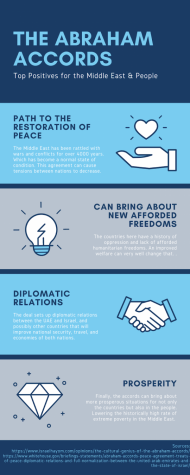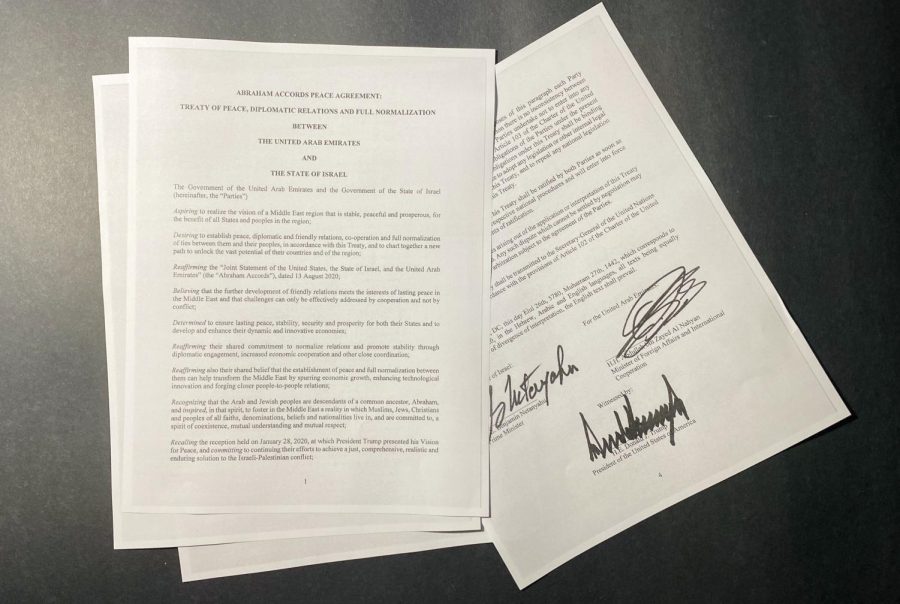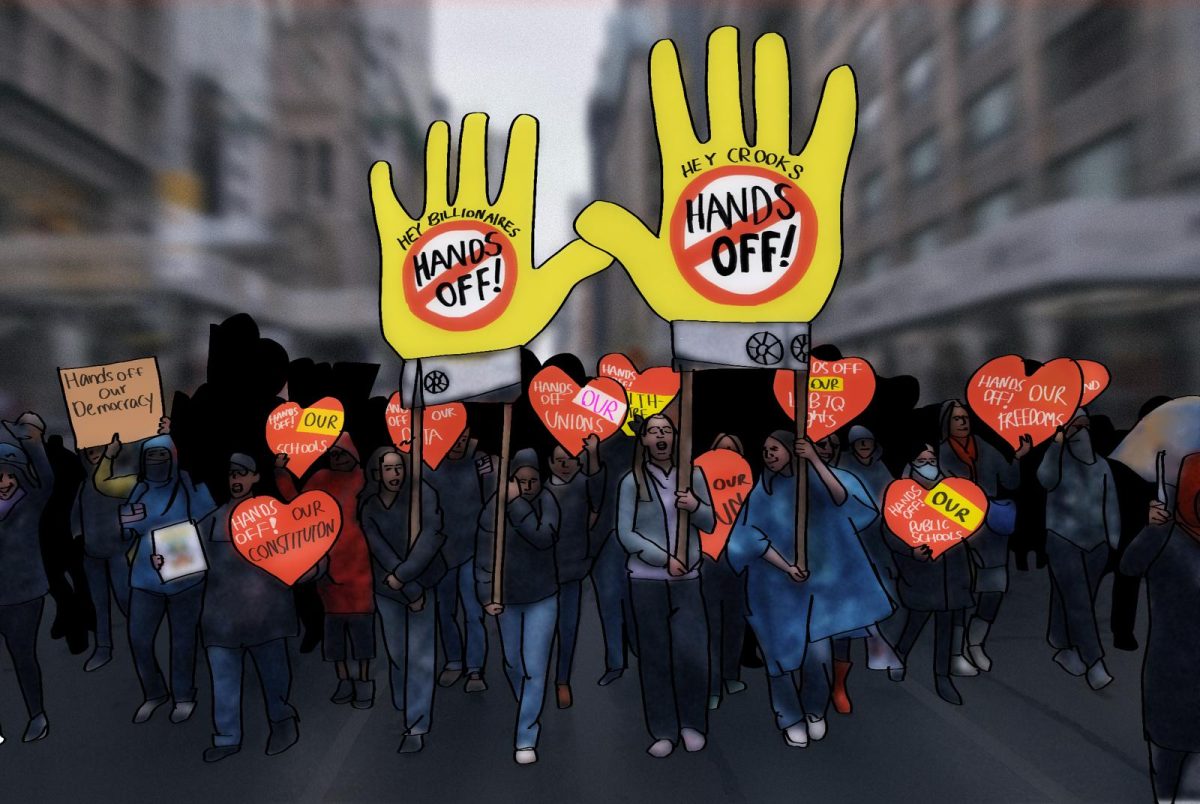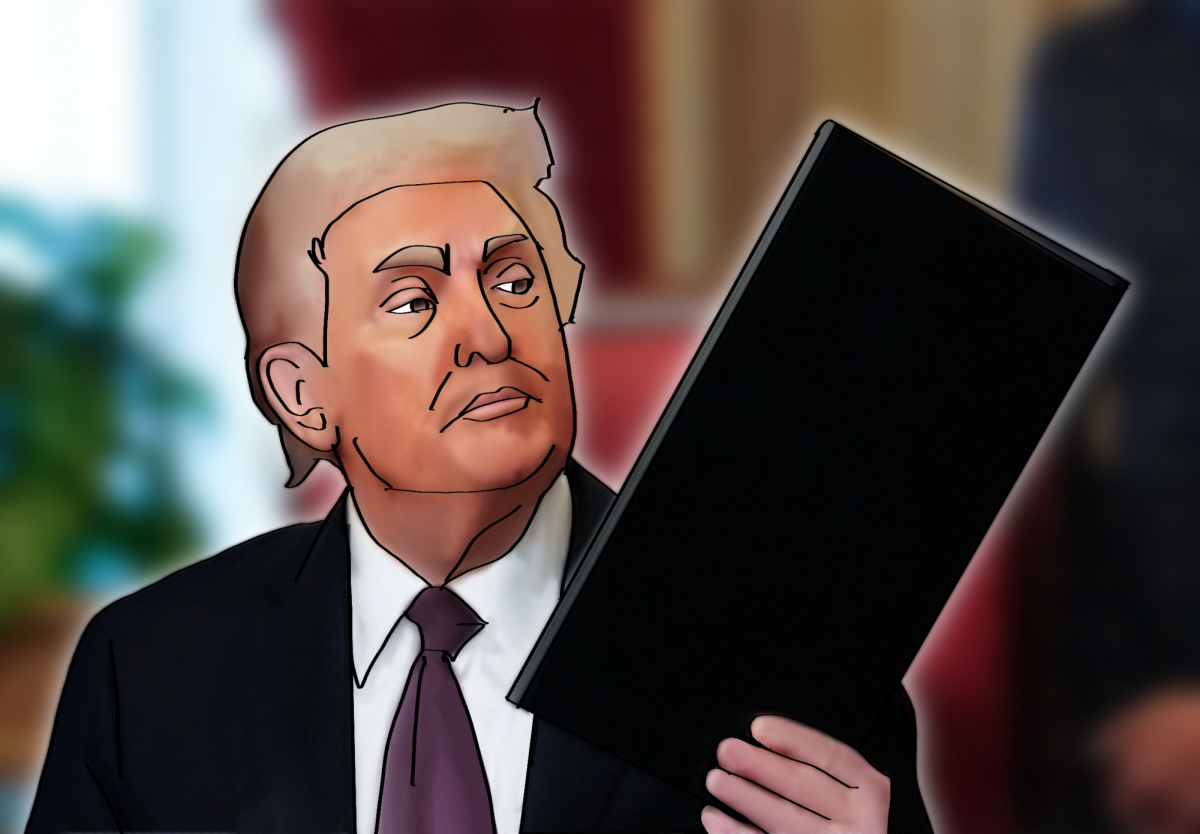Abraham Accords Mark Historic Middle East Peace Deal
Picture of the “Abraham Accords Peace Agreement” depicting the signatures of the diplomats. Including Prime Minister Benjamin Netanyahu, Adullah bin Zayed Al Nahyan, and President Donald Trump.
Sep 24, 2020
The picture of the Middle East that has been depicted in the mainstream media over the years has been one of terror, impoverishment and suffering. Soon enough, however, this image may change through the effects of a deal that was just signed by the United Arab Emirates, Israel and possibly more nations to join in. The agreement’s goal is to stabilize tensions in the region and to move towards a future that is prosperous for the people and nations that reside there.
The “Abraham Accords,” as they were named, was signed by Israeli Prime Minister Benjamin Netanyahu and the foreign ministers of the United Arab Emirates and Bahrain. The leaders met at the White House Tuesday, Sep. 15th, in order to make the agreement official. President Donald Trump served as a witness for the document and oversaw the signing and concurrence of all the parties involved. The leaders and their diplomats shared and expressed the importance of loosening tension and of the use of force and threats against each other and neighboring states.
Israel and the UAE deal follows a history of failed peace initiatives over many decades, dating back to 1967 with the “United Nations Security Council Resolution 242.” The UAE did not recognize Israel as sovereign nor did they have any formal diplomatic or economic relations with the nation due to the constant conflict with the Palestinians and disputes over territory ownership. This current deal, however, is the closest the nations have gotten in a long time to peace and stability that can prove to be economically and socially profitable.

“I think that after so many years of conflict, it’s great to see that the United States has managed to find a diplomatic solution to war in the Middle East like, until recently, the UAE and Israel. Hopefully this is a preview to a more peaceful and prosperous future for the world,” sophomore Ralph Sans said.
The accords require that both sides begin a new era of complete diplomatic relations with embassies and ambassadors being exchanged between the involved parties. The nations will also help each other in areas such as tourism, national security and healthcare with resources, flight plans and capital. Israel also agreed to suspend plans to annex part of the West Bank in order to continue the discussion and reach the historic agreement as it originally belonged to Palestine. This was a deal-breaker for the UAE, being the origin of much of their conflict over land disputes. The Kingdom of Bahrain also later joined in the mediation, reaching an agreement with Israel to establish relations as well. Setting up things like infrastructure, telecommunications, direct flights, healthcare and other areas of mutual benefit similar to the ones made with the UAE.
“To see these types of diplomatic relations develop between two previously polar nations is exciting for the effort of world peace and the tranquility of the Middle East,” sophomore Beckett Schultz said.
President Trump was set as a witness and was encouraged by the two nations to sign the document as a thank you, referencing “his untiring efforts and unique and pragmatic approach to further the cause of peace, justice and prosperity for all the peoples of the region.” He was later nominated for the 2021 Nobel Peace Prize by Christian Tybring-Gjedde, a member of the Norwegian Parliament, for the Accords, citing the “great accomplishment”, not only of the President, but the nations involved as well.
This deal is a historic one and will hopefully prove extremely beneficial for not only all the parties involved but also for the people who live in and around the Middle East. Too many humanitarian crises are happening in the region that need to be resolved as quickly as possible. The goal is that the Abraham Accords will allow the participating countries to develop and flourish to peaceful and prosperous nations that afford its people the humanitarian help and freedom they all deserve.











